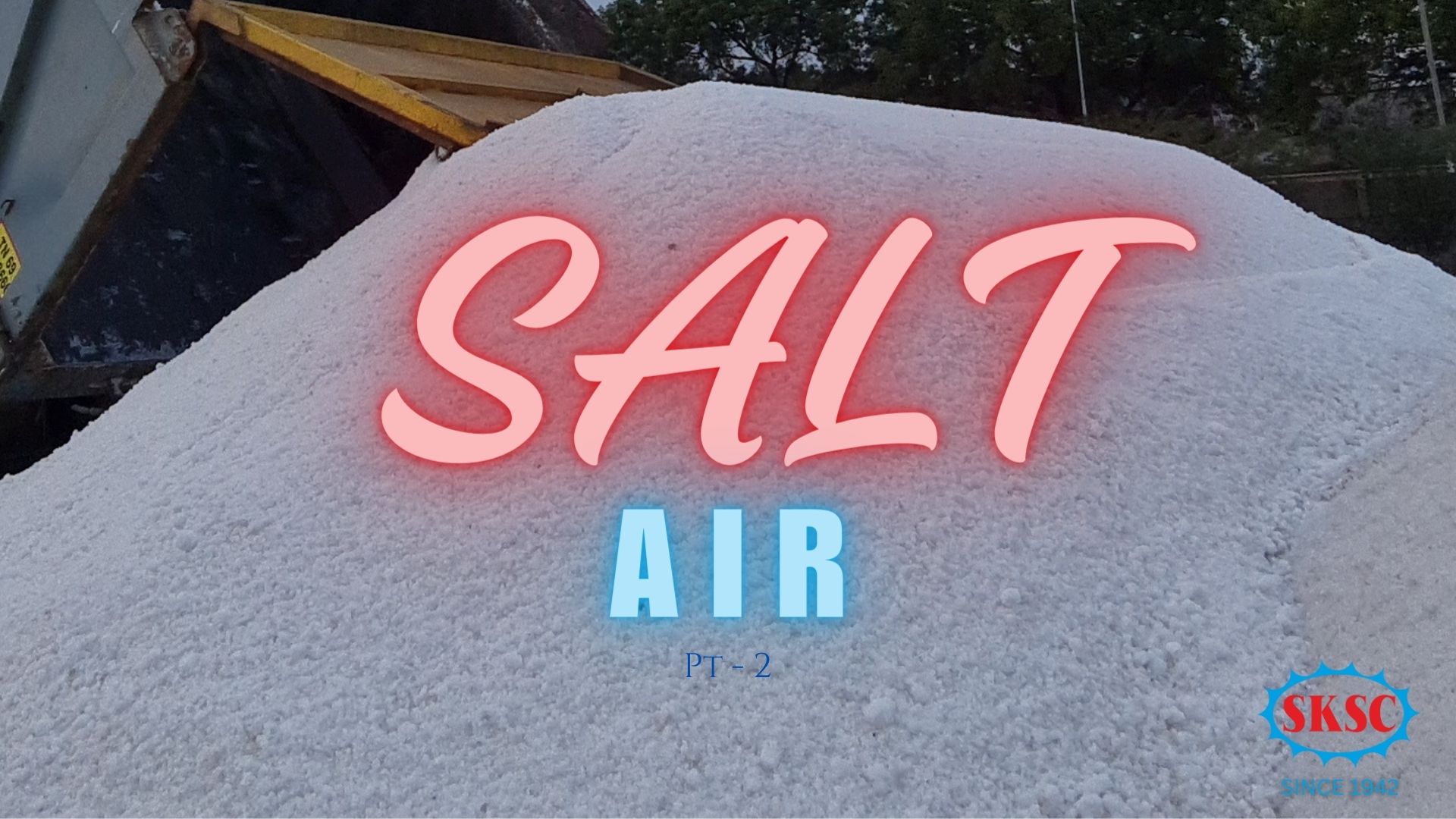
Salt-Air Pt 2
Salt air can wreak havoc on your home’s electrical system, especially if you live in a coastal area where salt levels are high. Salt air can corrode and oxidize metal components in your electrical system, causing a variety of issues that can affect your system’s safety, performance and lifespan.
How electrical systems get affected by salt air
- Electrical system corrosion: Salt air reacts with the metal parts of the electrical system, resulting in corrosion and deterioration over time. Electrical system failure: Salt air corrodes and deteriorates the electrical system’s metal components, resulting in low electrical conductivity and short circuits.
- Electricity contact corrosion: Salt air causes oxidation of the electrical contacts, resulting in bad electrical connections, higher resistance, and lower system performance.
- Insulation damage: Salt air damages the insulation on the electrical wiring and electrical components, resulting in electrical shorts as well as other hazards.
- Electrical fires: Salt air corrosion and oxidation increases the risk of an electrical fire, which is a major safety hazard.
To reduce the impact of salt air on your electrical system, the following steps can be taken to protect your system from salt air damage: Regular cleaning and maintenance of your electrical system Installing protective coatings or protective barriers in your electrical system Using corrosion resistant materials in your electrical system’s construction and maintenance Having your electrical system inspected and serviced on a regular basis by a qualified professional
How building materials get affected by salt air
The corrosive effects of salt water don’t end there. Salt water can wreak havoc on concrete, stucco, foundations, sidewalks and structural walls. Salt water eats into the rebar (rebar) that’s used inside the concrete. Salt water can also seep into porous concrete and slowly corrode it, causing weakness and instability that can last for years. The same is true for bricks, mortar and plaster.
How Mettalic components get affected by salt air
Depending on where you live and how close you are to the ocean, metal can start to rust, including stainless steel and titanium. Unfortunately, I see a lot of decks in beach homes that look like the one in the photo above. To prevent rapid corrosion, all structural connections and screws should be made of stainless steel. If you can, avoid metal at all costs because it won’t stand up to the salt in the ocean’s air. Vinyl doors and window frames are a great option, especially if you can afford it. Vinyl is much stronger than metal, and it’s definitely worth the investment. Aluminum, plastic and composite materials are great alternatives for outdoor furniture. Wood and metal, on the other hand, can rust over time due to exposure to salt.
S.K.S.C.NADARAJAN & BROR.
Salt company since 1942
Tuticorin Salt | crystal salt | crushed salt | relish freeflow salt | fine salt | coarse salt | size salt | Salt supplier | Kerala salt supplier | South indian salt export | South India salt company | thoothukudi saltern | Tuticorin saltern | deicing salt exporter | deicing salt tuticorin | Thoothukudi salt exporter | Thoothukudi traditional salt | Sea salt tuticorin | Sea salt Thoothukudi | Thoothukudi salt | salt exporter tuticorin | salt Thoothukudi | SKSC salt | India old salt company | Salt company India | Salt company tamil nadu | Salt company Tuticorin | Tamil nadu Salt | India Salt | powder salt | natural salt india
